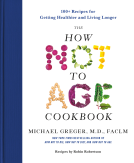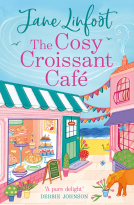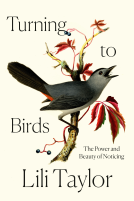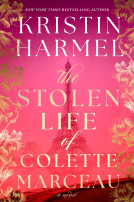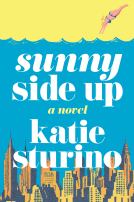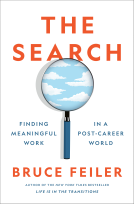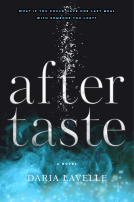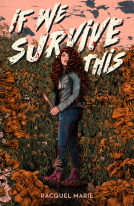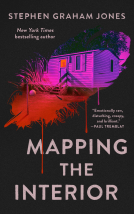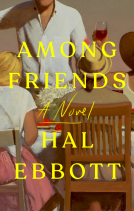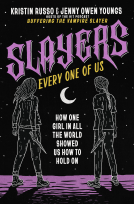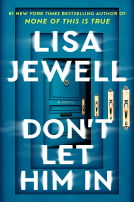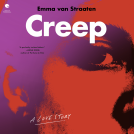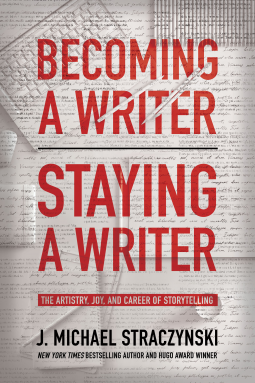
Becoming a Writer, Staying a Writer
The Artistry, Joy, and Career of Storytelling
by J. Michael Straczynski
This title was previously available on NetGalley and is now archived.
Send NetGalley books directly to your Kindle or Kindle app
1
To read on a Kindle or Kindle app, please add kindle@netgalley.com as an approved email address to receive files in your Amazon account. Click here for step-by-step instructions.
2
Also find your Kindle email address within your Amazon account, and enter it here.
Pub Date Jun 01 2021 | Archive Date Aug 01 2021
Talking about this book? Use #BecomingaWriterStayingaWriter #NetGalley. More hashtag tips!
Description
In the words of novelist Harlan Ellison, "The trick is not becoming a writer. The trick is staying a writer.
New York Times bestselling author and British Academy Award nominee J. Michael Straczynski knew he wanted to be a writer ever since he was a child. What he didn't know was how to actually become, or stay, a writer.
Now, he's giving fellow writers the comprehensive guide he wishes he had all along, personalized tips and techniques that can't be found in any other book on writing.
Becoming a Writer, Staying a Writer culls from Straczynski's more than thirty years of experience writing for film, television, books, and comics. Designed for writers in any stage of their career, this quirky, insightful and often humorous book provides an inside look at these industries with advice and wisdom covering such topics such as:
• What fledgling writers need to know to improve and sell their work—and avoid wasting valuable time
• Tips for experienced writers who want to get to the next level
• Staying disciplined when writing is your day job
• Why writers should never wait for inspiration
• Story-planning strategies that don't kill your spontaneity
• Expert techniques for effective, memorable world-building
• How to get an agent and survive the writer's journey in more personal relationships
• Revising and editing with precision
• When and how to reinvent yourself as an artist
Becoming a Writer, Staying a Writer includes Straczynski's unique, tried-and-true methodologies that will help storytellers sharpen their work so that it's polished and ready for publication. Part toolbox and part survival guide, this book will be an indispensable guide throughout your entire writing career, offering fresh and practical insights every step of the way.
A Note From the Publisher
This title is only available in PDF at this time. We will add epub files when available.
Available Editions
| EDITION | Other Format |
| ISBN | 9781950665884 |
| PRICE | $17.95 (USD) |
| PAGES | 288 |
Featured Reviews
Much better written than I expected from a writer best known for film and TV (not formats you naturally expect to translate to writing a book-length nonfiction project), and far more sensible than many of the writing tips books I've bought/been given (sometimes, amusingly, by people who didn't know much about writing) over the years. A cut above average, and well worth getting!
J. Michael Straczynski Becoming A writer, Staying A Writer, BenBella Books, Inc. Dallas, TX, copyright @2021 Synthetic Worlds, Ltd.
Thank you NetGalley for providing me with this uncorrected proof for review.
Becoming A Writer, Staying A Writer is replete with ideas; some criticisms of various methods used to teach writing; an insight into the life of a writer, with its pinnacles and troughs; and J. Michael Straczynski’s experiences with which he imparts his knowledge. I have an overwhelming feeling of appreciation for his zest in equipping writers with thoughtful ideas and tools for meeting the challenges confronting anyone who wants to be a writer and maintain that status. At the same time, I have some criticisms and see this book as part of a writer’s source of advice, rather than a perfect guide. Some of the advice appears difficult to follow or lacking in understanding, and although that is inevitable because of writers’ different capacities and requirements, it needs to be noted. What stands out are some marvellous sections of advice and information that cannot missed. J. Michael Straczynski has written from a writer’s world to writers who want to join it, or remain in it, combining entertainment as well as advice in the invitation to learn.
J. Michael Straczynski speaks of writing and rewriting, almost hewing the paragraphs into shape such as the work of a sculptor, as one of the feats a writer must achieve. He also provides excellent advice on where to end a piece of writing – leave an unfinished sentence so it can be completed at the next writing, beginning the next day’s work smoothly. Reading this advice, I wondered about the beginning of this book. It is quite autobiographical, and where the remaining work gives us so much understanding and insight into Straczynski I wonder – is so much material here necessary? Is he taking over where he left his autobiography? I wanted to get into the world of writing more directly, so found the first pages unexciting. Fortunately, I soon became engrossed in those that followed. Straczynski provides a work that lives, becomes the writer’s world of writing, draws us in.
This is not a textbook, lists of advice or notes on how to write, and Straczynski is critical of such limited, almost mechanical, methods of learning to write. This criticism of other texts, workshops and writing classes is useful, but not definitive. Some of these features of the world a ‘becoming writer’ inhabits could well be useful. Where this book helps is in deciding their value though describing the short comings of various learning modes. However, I believe that there are alternatives that require consideration. There are many useful texts on scriptwriting, writing short stories or a novel, for example, and The Guardian UK organises seminars for specialist writing, run by published authors, publishers, and scriptwriters. It would be a pity to reject the available opportunities based on Straczynski’s dismissiveness. He teaches writing in a university course: so not all such courses are limited. What becomes apparent throughout the book is that a writer must use the available tools judiciously, critically and with the determination to write. Straczynski provides the questions writers need to ask about alternative teaching methods and their content. His method provides many answers on how to fill any void.
Several sections and chapters stand out. The concepts about characterisation are marvellous. So, too, are the ideas about using scenes, in books, television or films, effectively. The advice to remain current, to forgo traditional planning of a text, to reject the old notions that underlie some books on writing was powerfully argued. Straczynski made not only sense but takes the reader through some fascinating proposals and history to demonstrate how a process might work well in past situations, but be unnecessary, or problematic under new circumstances. Where there are injunctions about what to do and how to do it, there is an abundance of material to help the writer achieve the aims of this book – become a writer, write, and remain a writer.
J. Michael Straczynski’s Changeling script was nominated for a BAFTA and won the Movies for Grown Ups Award for Best Screenwriter. However, more important in assessing this book on writing is how he eventually arrived at writing the script from the ‘rough story’ he had in his mind. The process he undertook to achieve an award-winning script is personal but has universal application. The story he tells, and advice that permeates throughout that story, is enlightening. This is how lessons on becoming a writer are put together in this book. As I noted earlier, the invitation to learn to write through Becoming A Writer, Staying A Writer book is one where advice and entertainment are mixed, making it an enjoyable as well as instructive read.
There is one sentence in this book that stood out for me, "stagnation is death." I often hear that a Writer is someone who writes, not someone who wrote, has written or will write- like a verb it's an ongoing thing and I love how the author sticks to this throughout the book. There are other tips and insights on editing, pitching, selling but what's key in all this is that you have to keep writing.
I also love that the format of the book is not in bullet points or made up of things to do- it is more of a narration of life lessons and you can pick and choose what stands out as you read along.
Thanks Netgalley for the eARC. This is a book that anyone who writes would learn from.
 Gemma J, Reviewer
Gemma J, Reviewer
As someone who is an emerging fiction writer (with a few contracted books to be released) and experienced non-fiction writer, I read this book with interest. It's one I would recommend especially to those starting out. It covers topics that you might not expect, including Imposter Syndrome, and Writer's Block. Overall I would recommend this book, particularly for those who are new to writing. For those experienced, you may get something out of it, particularly in the sections on 'Staying a Writer'. Thanks to NetGalley for a copy of this book in exchange for an honest review.
So, the hard truth first: after reading the book, I realized I wasn’t a writer, not even an amateur or an aspiring one. The writer is somebody who writes; that’s the whole point. If you can live without writing, you are not a writer. I fell into the same trap as many people before me: I think about writing more than I actually write.
Starting from J. Michael Straczynski's book ‘Becoming a Writer, Staying a Writer: The Artistry, Joy, and Career of Storytelling,’ I decided to distract myself from writing by reading about writing.
The book itself is more of a general summary of the author’s experience, eligible, unfortunately, mainly for the US audience. It was a great read, anyway, for an unemployed Russian-speaking housewife from Estonia like myself. Our universities and colleges do not have courses on writing because the market has a limited capacity of 1.3 million people, of which only 30% would buy books in Russian. Thus, the tips and tricks from the book can’t be applied to my reality, though I do not doubt that these are useful in other countries.
J. Michael Straczynski is a veteran of the industry. Comics, TV/film scripts, playwrights, radio broadcasts, and books on writing are among his activities – he surely knows the ways. Without giving away much information, I’d highlight one principle for each half of the book: to become a writer, one has to write faster than a speeding bullet; to stay a writer, one must constantly evolve and learn.
Unfinished projects mean you are not a writer.
Sticking to the comfort zone shortens your life span as a successful writer to ten years.
If you are an introvert or an ambitious actor, or both, it doesn’t automatically indicate that you have writing talent.
Don’t even assume that a writing profession is easy and, once on track, it will provide a livelihood without much effort.
The outstanding chapter that moved me at the emotional level talks not to writers, future, present or former, but the Person behind a writer’s back. With kindness and care, the author speaks about difficulties being in a constant shift between I-am-a-genius and I-am-nothing positions as most writers do. The Person behind a writer’s back has a nerves-consuming task of encouraging and occasionally admonishing to have a sleep and dinner. The chapter is a heartwarming reminder that the profession, especially an artistic career, impacts all family members, and their support is vital for survival.
Needless to say, I’d recommend the book to writers of all genres and ages. If you are planning a career in Hollywood, the book would be twice helpful in your pursuit of the dream.
 Devon S, Reviewer
Devon S, Reviewer
This book is hands down the best guide for both beginner writers and those who have found some success in their craft that I have ever read. There are some amazing, hard-won nuggets of wisdom in these pages. Half the time I felt like I could have been in a cozy pub, having a pint with the the best mentor possible. I read it in one day, one sitting because I couldn't bear to put it down. When I did finish it, I felt like a little new born baby writer-lamb being set on her feet, watched over and encouraged to go play in the daisy field by my new shepherd-mentor (while he also admonishes me to "finish it"...).
If you have ever scribbled your daydream down, or wished you had, THIS is the book for you!
 Reviewer 512203
Reviewer 512203
This is a great book on writing for anyone who is interested in the art of storytelling. It doesn't include a lot of craft suggestions, which is fine because you can get those kinds of tips from other books. This book focuses on areas that often don't get mentioned in writing books--like how to pitch your story, how to collaborate with other writers, and how to edit with precision. Straczynski also gives some anecdotes from his own life, like Stephen King did in his own writing memoir.
This is a very practical book for writers at all different levels of experience, but the advice is more advanced than what you'll find in most how-to books. The writer clearly knows his stuff, and I enjoyed his philosophical commentary on the writing life. Some of the jokes fell flat for me, but otherwise, I really enjoyed this book.
Thank you to NetGalley and the publisher for providing me with an advanced reader's copy in exchange for my honest opinions.
 nathan h, Reviewer
nathan h, Reviewer
Immensely valuable, and I’d even say that it has readability for those who aren’t even interested in writing, as it has several key teaching moments that are applicable across any skill set.
While I’m certainly not a professional writer, the tiny amount I sneak in will be tremendously helped by the author’s advice and wisdom—it’s a frank, no-frills letter to help out anyone who just needs even just the faintest of navigational beacon from someone who has had measurable success (great success, in my opinion).
It’s buy-worthy even as just a resource and/or recalibration tool.
Many thanks to NetGalley and BenBella Books for the advance read
This was a great read! I thoroughly enjoyed this book and devoured it. It provided answers to many of the common questions and also highlighted some lesser known aspects of the industry. The author is funny and informative with plenty of tips for anyone struggling with writing. I highly recommend this book and will be sure to check out his other works. Thanks to NetGalley and the Publisher for this ARC.
4 stars!
This one was surprisingly helpful and fun. Truth be told, I don't read many writing advice books and half of the time I find them completely useless. But not this one. I enjoyed the author's writing here and his humor. There were so many useful tips which would benefit struggling writers such as me. I would recommend this book to everyone who wants to become a writer. This is a very valuable resource.
 Scott F, Reviewer
Scott F, Reviewer
I was provided an early copy from the publisher via Netgalley. This in no way affected my opinion of the book.
J. Michael Straczynski would be one of my writing heroes even if all he'd ever done was to write 92 of the 110 episodes of the excellent Babylon 5. But he's done so many other great projects, too. So I was thrilled when I saw that he'd written a book on writing--but not just becoming a writer but also staying a writer. It's right there in the title. What that means is that after spending the first part of the book giving you no-BS advice about the process from his years of experience, he gives you advice for how to stay a writer after you've made it. (And he believes you'll make it.) This includes his three-legged stool philosophy, where he feels you should have three different writing revenue streams (say, comics, TV, and short stories), so that if one of them falls away, you've still got things to keep you afloat. I'm not sure that works, since a three-legged stool that's missing a leg just falls over. But whatever. This book is gold.
I have a To Read pile a mile high, and I fully intended to just read a few pages of this, and then set this aside for one of the other books. The next thing I knew I was 10% in, and aware that I was just going to finish this. It was like drinking from a fire hose. As soon as I finished, I was ready to immediately start again at page 1, this time with an eye toward capturing the specific nuggets of wisdom found throughout. This is excellent advice, even if you're not a genre writer. Highly recommended.
 PA M, Educator
PA M, Educator
Any writer, published or aspiring would do well to follow the advice in this book! Straight-forward advice and cautions from this already successful writer hit home and give tips to the uninitiated. At times I felt he was writing with me, a novice, in mind. He uses some humor at various times, but it’s not at the expense of the pedagogical voice he uses. An example of his humor is where he uses made-up words to get his point across and gives you as a writer to do the same. But the best advice Mr. Straczynski gives applies to ALL writers, published or not – just Finish It! Well said.
 Jennifer T, Reviewer
Jennifer T, Reviewer
Another excellent "how to" book from JMS. I loved his screenwriting book, so I was looking forward to this more general book, and it did not disappoint. With his familiar style and take-no-prisoners approach, he reminds us writers why we do what we do, and gives practical advice on how to keep doing it.
 Kyle M, Media/Journalist
Kyle M, Media/Journalist
This book is better than an MFA and certainly less costly! Straczynski's a bit of a crank, his anecdotes are ridiculously juicy and comical, but I personally love his no nonsense acknowledgement of the challenges to making a living in the creative arts. I think there's such a societal (snobby?) tension between writing as "art" and writing as "something to make money doing," and Straczynski offers up his experience and advice on how to maybe do both. I liked how practical and realistic this was, the antithesis of a heady MFA program that is utterly divorced from the realities of the Publishing and Entertainment industries.
 Reviewer 822081
Reviewer 822081
This is one of the best books on building a writing career that I've ever read. As a very early-career writer myself (I've published some short stories in professional magazines, but I don't have an agent and I've never sold a novel), I would put this up there with Stephen King's On Writing in terms of writing books I expect to turn to again and again.
Note that this is not a craft book. In my opinion, it's better than that. Craft books are easy to find and very hit-or-miss, but books on building and maintaining a writing career – books with tips and tricks, information on pitching and building relationships and keeping your sanity – are few and far between, and this is a really good one. The information is useful and actionable, drawn from Straczynski's decades of experience across fields, and he cites that experience time and time again without ever coming across as tedious or arrogant. The book is also, frankly, very funny, surprisingly full of heart, and eminently readable.
 Beth C, Reviewer
Beth C, Reviewer
I received an early copy of this book from the publisher via NetGalley.
I've read many writing books. Straczynski's new release approaches the subject of writing from a fresh angle: his own life, with his diverse experience in Hollywood and in publishing, as he discusses the tenacity and work necessary to "make it" within the industries--and then how to hang after that. His tone is easy and conversational, and the book is a fast read.
I've adored the man since I was a Babylon 5 fan as a teenager, and this book increased my esteem for him even more. As a writer myself, one who is definitely at the "trying to hang on" stage, this book felt both timely and personal. Straczynski gets it. Even with all his success, he's still working hard because he loves what he does, as challenging as it is at times.
He begins with a Stephen King quote that I hadn't seen before: "In the end, you don't even do it [writing] for love, although it would be nice to think so. You do it because to <i>not</i> do it is suicide."
That sets the tone for the book. Everything here is for people who NEED to write, even though it's hard, enough though life and rejection grind you down. Even more: even when writers grind down themselves. As he notes, "A writing career can survive rejection, ridicule, starvation, and loneliness, but fear or complacency will kill it every time."
He doesn't claim to possess any shortcuts or special methods. He actually, with exasperation, describes people he's dealt with time and again who insist otherwise. When it comes down to it, the book is about tenacity and hard work. Other writing books address that, sure, but Straczynski's words really resonated with me. This is the kind of volume I think I'll reference again in the future when I need his honest outlook to motivate me.
 Dan O, Bookseller
Dan O, Bookseller
My thanks to both NetGalley and BenBella Books for this guide to writing.
As a writer who declares loudly that he is a writer, and yet I don't like even sharing my book reviews with people, I've read more than a few, slightly less than a ton of magazines, guides, how-tos, why nots, and biographies and letters of writers and what to do to be become one. Becoming a Writer, Staying a Writer: The Artistry, Joy, and Career of Storytelling by J. Michael Straczynski is the best.
The book motivates, pushes teaches, and shows you the writing life, not juts sitting down and doing it, but how to keep doing it day after day, no matter what the outer world, and more importantly the inner voice is telling you. Mr. Straczynski wants you to write as he shares all the joy that writing has added to his life. Sure there might be some revenge as with one teacher who told him he had no future, but writing to Mr. Straczynski is like breathing. He needs to do it. And understands that you the reader wants to also.
There are stories, which are helpful,but loads of practical advice, motivation and reasons for writing. Mr. Straczynski has not had the easiest of lives, but that has not stopped or crushed him from being the person he wants to be. He feels the importance of offering the next group a hand up. And he has done so with this book. I feel that quite a few acknowledgement pages will be listing his name for helping a burgeoning writer keep the dream alive.
 Elle P, Librarian
Elle P, Librarian
An excellent resource for aspiring writers. A recommended purchase for collections where writing craft books are popular. HS crossover appeal for schools with strong creative writing programs.
What an excellent guidebook for writers.
Becoming a Writer, Staying a Writer is an easy book that provides tips on storytelling in such a way that you can easily follow.
If you have ever been interested in character building and everything else that comes with writing a book then this guidebook is amazing. What's great is, it also addresses critical points after you have started writing.
Have you ever experienced writer's block? Well, this author is an experienced writer and wants to share with you everything he has learned since he started his career.
Excellent bible for new and existing writers.
 Tara A, Book Trade Professional
Tara A, Book Trade Professional
I have learned from mentors along the way that when we reach a certain level of success, it's important to reach back down to help those who follow us, pursuing the same trail. And J. Michael Straczynski has done just that with this book.
"Becoming a Writer, Staying a Writer" is probably one of the best books on the writing craft that I have ever read (not just how to write, but how to make a living from it too).
I loved how open and honest he was about what it takes, as well as the bits of wit and snark he peppers his commentary with along the way.
There is only one writing book that I tell other authors must be on their bookshelf to be taken down and referred to regularly, Strunk and White's "The Elements of Style." Now, I have a second recommendation for those who are truly serious about pursuing a career as a writer. "Becoming a Writer, Staying a Writer."
While the book is written from the viewpoint of a screenwriter, the tips, ideas, suggestions and wisdom he shares apply no matter what form your writing craft takes. I highly recommend this book!
 Christina D, Educator
Christina D, Educator
I really enjoyed this book on writing! It is so entertaining, actually funny in many parts and has a lot of heart. Lots of practical advise from a very reputable and experienced author. It is for the beginner, as well as the accomplished writer. One of my favorite books on writing!
 Sarah Joyce B, Reviewer
Sarah Joyce B, Reviewer
An excellent guide to writing filled with humor and wit. I especially enjoyed the examples provided and the exercises offered. Those helped bring what the author was trying to convey into something tangible that I could experience with my own writing. So much of what the author talked about really hit home for me. It’s not that I didn’t logically know what he was talking about prior to reading this book, it’s that the way he said it and exemplified it finally connected the unconnected in my head so that it all finally made sense in a real not abstract way.
Subtitle: The Artistry, Joy, and Career of Storytelling
I received an advance reader copy of this book from the publisher through Net Galley in exchange for an honest review.
J. Michael Straczynski has written for television (Babylon 5), film (Thor, World War Z), comics, non-fiction books (like this one), and has a novel coming out later in 2021. He has extensive knowledge in writing and storytelling in many forms. The book gets is title from a Harlan Ellison quote: “The trick is not becoming a writer. The trick is staying a writer.” It is divided into two parts: Becoming a Writer is aimed at beginning writers as the level up their craft and face a lot of rejection. Staying a Writer is aimed at writers who have experienced some success, but want or need to make the leap to being able to write as their full-time career. Although I fall into the first group, I also read the second part of the book in the event I could learn something from it.
Straczynski pulls no punches in the advice he gives emerging writers. The more writing you do, the better you get at it – in his opinion, if you don’t make time for writing you don’t really want to be a writer badly enough. I’ve read my share of books about plot structure that fit certain story events to specific spots (down to the page numbers) in the novel/script – Stracynski dismisses these as money-making schemes for the people who develop them, and that writers need to force structure to serve story. Even the sacred cow of the three-act structure is called into question, because it was a carryover from the playwrights Hollywood brought in during its early days, and was designed to give theatre patrons from totally walking away from the production during the intermissions between acts. He encourages writers to treat every scene as an individual act worthy of a gripping ending to keep readers/viewers hooked.
I gave Becoming a Writer, Staying a Writer five stars on Goodreads. I recommend it to anyone who takes their writing seriously. I’ve read some of Straczynski’s graphic novels previously, and I’m planning on reading his 2002 book about screenwriting.
 Nancy F, Reviewer
Nancy F, Reviewer
Practical Advice for New and Experienced Writers
The title ways it all. This is a book for writers at all levels. If you’re just starting he provides good advice on how to begin. If you’re already a writer who wants to get to the next level, he has advice for you too.
Straczynski has a varied career writing for films, comics, television and, of course, books. These unique experiences led him to develop a series of proven methodologies that will help you at whatever writing stage you find yourself. He always wanted to be a writer and over his thirty years of experience he’s had many challenges. One of my favorite parts of the books is the stories he tells about his career.
His advice is helpful. There are no magic formulas. He embraces the idea that writing is hard work and takes tenacity to succeed. In some ways, this is the most useful advice. I highly recommend this book to all writers and wannabe writers. I think you’ll be glad you gave it a look.
I received this book from Net Galley for this review.
A friendly and accessible book which avoids the overdone genre of how-to-write and instead explores actually being a writer.
I have been writing for a long time and, like most writers, I have a collection of favorite books on writing. These days, I feel a bit more jaded about the dozens of how-to books that seem to come up every year, full of rules and regulations and attempting to box the creative art of "writing" into a set of routines as if it were a formula for creating publishable words. I was concerned that J. Michael Straczynski's new book, __Becoming a Writer, Staying a Writer__ might be more of the same. However, the Ellison quote in reference to the title dragged me in: "The trick is not becoming a writer. The trick is staying a writer."
The promise that the second half of the book would be useful for established writers was enough for me to give the book a chance. Straczynsky is famous as both a television and feature film screenwriter, most notably (to me) for Babylon5. This clear success as a working author with a wide range of projects (and awards) ranging from screenplays to comics to games, made me hopeful that Straczynsky would offer practical advice rather than a to-do list. I requested, and received, an advance review copy through Netgalley.
I was not disappointed. __Becoming a Writer__ feels less like a lecture in Writing 101 and more like sitting with a successful friend who was happy to chat with me about his experiences and the lessons he learned along the way. He talks with affection about the golden age of SciFi but also with excitement and approval of the modern diversity appearing in the best science fiction, appreciative of both the classics and the new authors breaking boundaries. His style is conversational and fast-paced, making it easy to skim the chapters that seem less relevant while still picking up the gems interspersed throughout the book. His advice is never is patronising but given in the context of his own writing in the hopes that it might be useful:
"__You know, I used to think that writing science fiction was all about writing familiar characters in unfamiliar settings. It took me twenty years to realize I was wrong. It’s about familiar relationships in unfamiliar settings.__"
I have never written a screenplay and I'm unlikely to ever be tempted by such a thing, but Straczynski's advice is not about technique or Save-the-Cat style rules but much more timeless than that. Although I only expected to be interested in the second half of the book, I found plenty to occupy my mind in the first half as well. Straczynski rarely gets into the nuts and bolts of writing and is more focused on how to establish yourself as a strong writer and a person that is good to work with. His experience as a producer and as a direction gives a different angle which can be immensely useful. But more importantly, I enjoyed the silly anecdotes and interesting behind-the-scenes details that appeared alongside writing advice that was useful and interesting. When I finished, I was almost sorry: I felt for a short time as if Straczynsky was my friend and mentor. If you are looking for nuts and bolts of writing, then this is probably not the book you need. If you aren't writing yet, then I suspect the book will be of limited value. However, I strongly recommend this book for anyone who is producing written work and understands there is no magic word that will suddenly turn you into an author.
Readers who liked this book also liked:
Michael Greger, M.D., FACLM
Cooking, Food & Wine, Health, Mind & Body, Self-Help
Kristin Russo; Jenny Owen Youngs
Biographies & Memoirs, Humor & Satire, Nonfiction (Adult)

